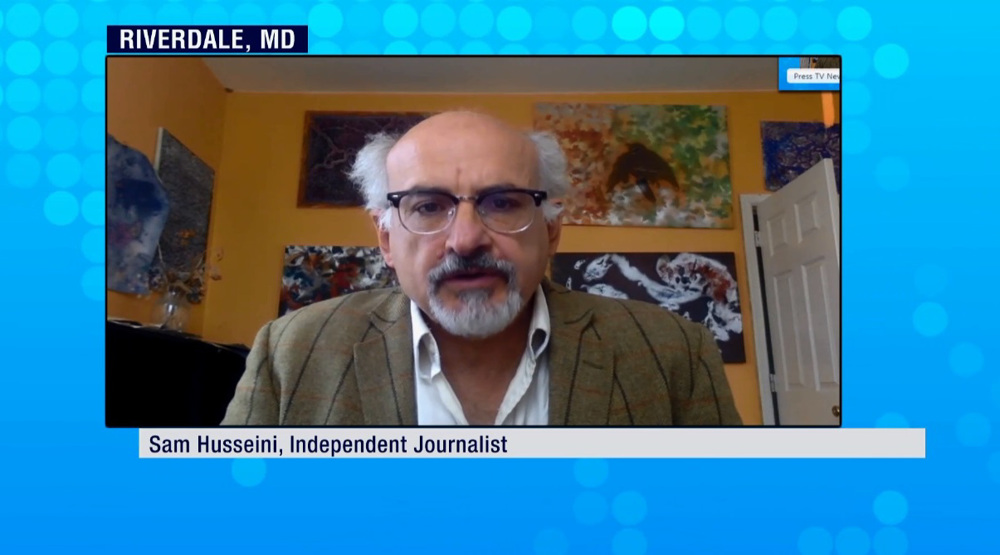‘US anti-China policy driven by imperialist agenda'
Chinese President Xi Jinping’s upcoming visit to the US for a meeting with President Donald Trump has revived speculations about how the two leaders are going to negotiate trade. Ever since the new US administration called for changes in foreign trade agreements, China has urged American authorities to respect international trade rules. The Chinese have stated that they want to cooperate with their American counterparts on a basis of equality and mutual benefits. To discuss that and more, Press TV has interviewed John Steppling, an author and commentator from Norway, and Brent Budowsky, The Hill columnist from Washington.
John Steppling is of the idea that the anti-China policy of the US administration represents only a “repackaged American imperialism” that goes back to the Vietnam era containment strategy and even the Opium War in the 19th century.
“The United States is an imperialist nation,” and its foreign policy has remained unchanged since World War II, he noted.
Referring to America’s economic and political agenda throughout the world, especially in Asia, the author argued that the US always wants to exert control over resources and “the penetration of Western capital into these markets is always about control.”
Underlining the fact that military and economic motivations are intermingled in American policy towards China, he said, “You can’t discuss the economics as if the political military doesn’t exist and you can’t speak of it outside American imperialism.”
“The great fear that Trump and many others in the US have is the economic clout that China has and that there is a relationship forming among China, Russia, Iran and the eastern economic law that threatens the economy of Germany and the United States,” he added.
Steppling also said that the US has surrounded China with military bases and has built new bases in South Korea, which is a threat to the Chinese territory.
He pointed to remarks made by Steve Bannon, an assistant to President Trump, who said ‘the US was going to go to war with China,’ noting the rhetoric represents the xenophobic and nativist nature of the new American administration.
In 2012, the Obama administration placed additional focus on East Asian in order to strengthen American influence in the region.
Read More:
The analyst went on to say, “The Pivot to Asia began with [former US President Barack] Obama and it has been militarily aggressive and threatening and that should not be discounted.”
Describing the United States as an aggressive power, Steppling said, “It is absolute nonsense to suggest that China is the aggressor in their own region,” and “the aggressor nation in the world in general is the United Sates.”

He noted that the US economy is becoming increasingly dependent on military spending and war.
Meanwhile, Budowsky said the US policy towards China is about “protectionism” rather than “imperialism.”
According to the analyst, there is a protectionist tide in the world and President Trump is moving in the same direction.
He further described China as the aggressive power in the South China Sea, claiming that the US has expanded its presence in the region to defend other countries from “Chinese imperialism.”
Commenting on Trump’s provocative rhetoric, the Washington-based columnist said, “Don’t follow what Trump says; follow what Trump does,” adding the chief executive’s actions are different from his words.
Trump promised during his campaign that on his first day in office, he would stop the Chinese from what he called ‘raping the American economy’ by manipulating the currency, but that did not happen, the analyst concluded.
‘Say no to Biden’: US college being pressed not to endorse genocide
VIDEO | UN: Alarming food insecurity crisis grips Afghanistan
VIDEO | Stuck in quagmire
UK suspends legal assessments of Israeli violations in Gaza
Students protest at US universities to urge end in financial ties to Israel
Biden signs war aid bill supplying Israel, Ukraine with more weapons
VIDEO | France, West warn Israel against escalation with Iran
Iran refutes Kuwait’s assertion of exclusive rights to Arash gas field













 This makes it easy to access the Press TV website
This makes it easy to access the Press TV website